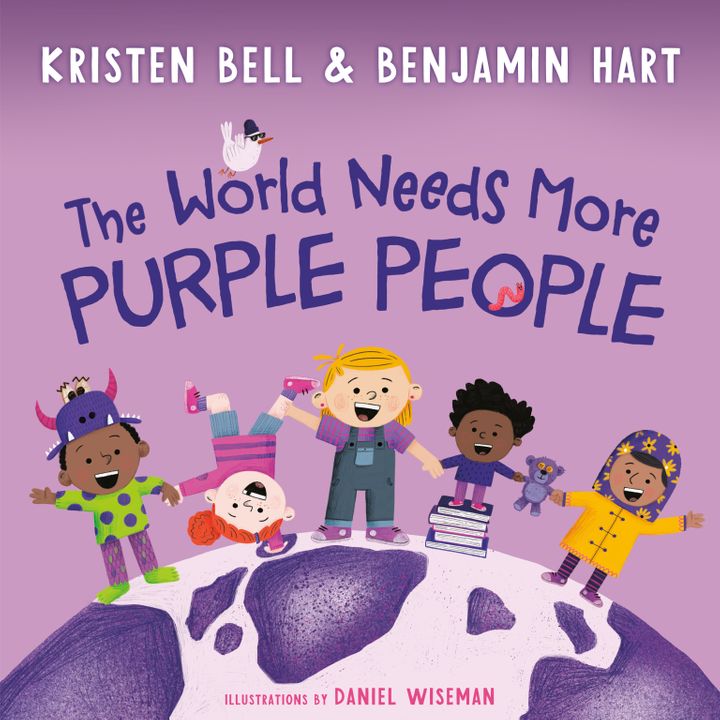News
Kristen Bell Opens Up About Raising Compassionate Kids Today
Kristen Bell has always been a funny and honest parent.
The actor, who shares two daughters, Delta and Lincoln, with husband Dax Shephard, has shared her thoughts on everything from pumping to privilege to why she doesn’t tell her kids “it’s OK.”
This past spring, Bell and creative director and fellow parent Benjamin Hart released a children’s book aimed at kids ages 3 to 7 called “The World Needs More Purple People.” The picture book encourages kids to use their voices and be kind while finding common ground with others, which, Bell believes, is something we desperately need right now.
“We felt discouraged about the ‘us/them’ political culture seeping into our kids daily lives and we wanted to create language to help,” Bell told HuffPost via email. “Red+blue = purple. We didn’t want our kids looking around and seeing enemies. We wanted a social identity that positions them towards their fellow humans.”
The book received pushback when it was published, as people on Twitter noted that it promoted “colorblindness.” Bell addressed the criticism head-on, both on Twitter and in an interview on “The Today Show.”
“Some people interpreted that as trying to say it was colorblindness, which I want to be really clear it is not at all. When I say find sameness or common ground, I mean look at each other as human beings, right? We have an identifiable feature. We can tell we’re human beings, so you first start with someone’s humanity and that is step number one,” she said in the interview, adding that the book was written two years ago.
While, to Bell, being a “purple person” means asking questions, laughing and taking action when you see injustice, it’s also, Bell says, about being yourself. “It’s about celebrating the things that make each of us unique and seeing those beautiful differences,” she said.
So how does she practice this in her own home? “I encourage them to ask questions about everything. When they ask for something and I say no, I tell them to create a better argument if they’d like to get what they want. I do my best to let them know in words and actions, that every single human on the planet is worthy, and that using our voice isn’t just for ourselves, but for others too,” she said.
Bell said she hopes parents and kids take away several lessons from the book, namely to “be curious, apply critical thinking, stand up for others, laugh A LOT, work hard, and celebrate themselves.” After all, she added, “I think that’s a recipe for a pretty darn good human.”
The mom has been open in the past about giving her kids grace during these COVID times. Bell told HuffPost that she’s been open about everything from COVID to the Black Lives Matter protests with her daughters. “We’ve been leaning in to books acknowledging cultural differences and protecting and standing up for others when equality isn’t recognized. We talk a lot about being an Upstander and not a Bystander. Politically, which is probably the most complicated topic, I’ve spoken about the importance of voting. Sometimes I’ll have them vote on what we have for dinner or what show we watch on TV, so they understand the impact of their voices,” she said.
When she’s not presumably reading her own book with her kids, Bell says some family favorites include: “GoodNight stories for Rebel Girls,” “Little Leaders: Visionary Women Around The World,” “Malala’s Magic Pencil,” “I Am Every Good Thing,” “The Gift inside the Box,” and “Sulwe,” among others.
And it wouldn’t be a (virtual) chat with Bell if she didn’t deliver an excellent parenting pro-tip. How does she handle it when her kids won’t stop asking questions? “I try my best to answer all the questions, but sometimes I just cannot keep up. Sometimes I’ve said to my kids ‘I don’t have the brain power to answer questions right now. Write down your questions down and I’ll answer them later.’ I know this is frustrating for them but I also think it’s an important lesson in delayed gratification and teaches them that their desires aren’t always going to be met.”

